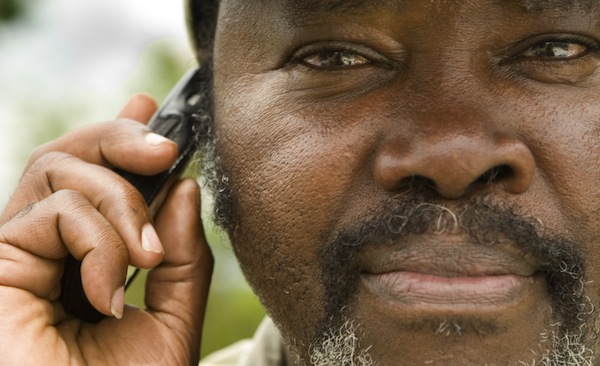Made for mobile? Four open source applications for phones

When you examine the rhetoric around the meteoric rise of technology start-ups in Lagos, or pioneering mobile service providers in Nairobi, one word stands out. Leapfrog. Speak to many technology journalists, and African technology providers are looking to 'leapfrog' the development centres of Europe and the US. That is, if they haven't done so already.
Leapfrogging is an ambiguous term in this context. It is often used to describe technological development that avoids the pitfalls that claimed others who were moving in a similar direction. By learning from the mistakes of predecessors, new developers are able to pivot, adapt and iterate successfully. Leapfrogging can also refer to simply accelerating past previous innovators, perhaps through better focus or newer production methods.
Mobile technology and Africa have long been synonymous with leapfrogging. M-Pesa is one of the world's most advanced mobile payment services. Where did it originate? Kenya, in 2007. Can I transfer money easily in Berlin using my mobile phone? In 2012? No. That's a good example of where a supposed 'undeveloped' region is leapfrogging other parts of the world by innovating through both need and inspiration. So, what's next for mobile innovation?
Africa Rising?
At Highway Africa this year, I was asked to contribute to a panel called Mobile Technology and Digital Life in Africa. Focusing on the media's future, primarily with regards to software and technological development, our session featured three open source mobile platforms.
1. MobiSAM
Hannah Tinyane, professor at Rhodes, showcased MobiSAM, a pilot project which aims to "investigate the viability of using mobile phones as a tool for social accountability monitoring." Hannah's main focus is on improving service delivery and accountability in the Makana Municipality, but the project could be used anywhere to increase citizen engagement in local government processes. The project is underway and, hopefully, open source code is forthcoming.
2. NikaNOW
Essentially a lightweight CMS for mobi sites, NikaNOW is the brainchild of Michael Salzwedel, who has drawn from his experience as online editor of Grocott’s Mail in Grahamstown. The framework allows you to rapidly prototype mobile (truly mobile, not just smartphone) sites featuring a mix of live and static content. Michael offers hosting, or the application can be downloaded and installed. Information on installation is a little hard to find, and it will be interesting to see whether adaptive CSS and the ubiquity of smartphones diminish the impact of the project in some countries, but great to see real news knowledge being used to develop open source platforms.
3. TeleWeaver
Lindikaya Ntshinga, also of Rhodes University, presented TeleWeaver. Developed out of ReedHouseSystems, the commercial software development house associated with the Centres of Excellence at Rhodes University and University of Fort Hare, Teleweaver is a lightweight, custom-built mobile gateway system targeted at rural and marginalised communities in Southern Africa. It's in its early stages and requires development of applications within it so, like the other projects, with greater community involvement and access to code, interesting things should arise from it.
Samuel Mungadze, the publisher and editor of ICT Journal Africa, led the session, and emphasised the importance of journalists and developers working together to build tools. It's clear that media owners and journalists feel their voice is not being heard by software developers, or they lack the vocabulary through which to communicate ideas effectively. It's something we're trying to work on with #newsbeta, our initiative to provide journalist-friendly, coder-ready activities that will contribute to the quick development of software feature in accordance with the needs of newsrooms.
Many open source, mobile-centric developers would do well to look at FrontlineSMS, who just released version 2.0 of their software. It enables people to send, receive and manage SMS communication over a mobile network. The documentation is good, community support works well and the use cases are well presented on the site.
We're always looking at ways we can improve how we explain what our tools do, where they can be used and how to get help. If you couple this with an increase of interest in technology from newsrooms, then the leapfrogging potential of tools for media, wherever they are being developed, looks bright.
Have a great mobile app you want to share? What's leapfrogging in your world? Let us know below.
